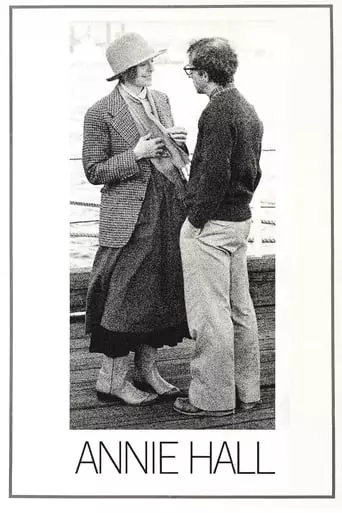
Annie Hall (1977) Watch Online Free
New York comedian Alvy Singer falls in love with the ditsy Annie Hall.
Woody Allen’s Annie Hall (1977) is one of the defining romantic comedies of its time, blending humor with profound reflections on love, identity, and the human condition. The film follows the relationship between neurotic comedian Alvy Singer (played by Woody Allen) and free-spirited singer Annie Hall (Diane Keaton). This film is not just a romantic comedy, but a poignant exploration of relationships, communication, and self-discovery.
The film opens with Alvy reflecting on his past relationships and his current breakup with Annie, using direct-to-camera monologues that are as revealing as they are witty. Through flashbacks and nonlinear storytelling, we see the evolution of their relationship—from the awkwardness of their first meeting to the blossoming love, and ultimately, their separation. As Alvy reminisces about their time together, the audience is shown the highs and lows of the romance through quirky sequences, often breaking the fourth wall and blending humor with personal introspection.
The nonlinear structure is central to the film’s appeal, as it mirrors the fragmented, often disjointed nature of memory. The film delves into Alvy’s mind, showing his analysis of the relationship from various angles, jumping between moments of joy and heartbreak, all while incorporating comedic elements that highlight the absurdity of life and love.
Annie Hall is known for its innovative narrative techniques. The film frequently breaks conventions, incorporating surreal moments, such as when the characters speak directly to the audience, or when Alvy imagines his thoughts played out as captions or animated sequences. This playful use of form not only sets the film apart from other romantic comedies but also reflects the fragmented nature of human memory and the complexities of love.
The film explores themes of love and relationships with a refreshing honesty. It doesn’t shy away from showing the difficulties of romantic connections, but it does so with a balance of humor and tenderness. Alvy’s introspective nature and Annie’s carefree attitude create a dynamic that feels authentic and relatable, with both characters being deeply flawed yet endearing.
Annie, portrayed by Diane Keaton, is a standout character. She is intelligent, quirky, and independent—traits that were not often highlighted in romantic comedies at the time. She represents a modern, complex woman whose personality and choices are central to the film’s exploration of personal growth and the challenges of intimacy.
Watching Annie Hall is an experience that lingers. It’s not just about the romance between Alvy and Annie, but about the complexity of human emotions and relationships. After the film, you might feel a mix of nostalgia, introspection, and bittersweetness, reflecting on your own past relationships. The humor is sharp, but it often gives way to deeper, more poignant reflections on love and self-discovery. You may find yourself pondering the unpredictability of relationships and the ways we remember them. Annie Hall invites you to laugh, cry, and think deeply about the connections we form with others and ourselves
